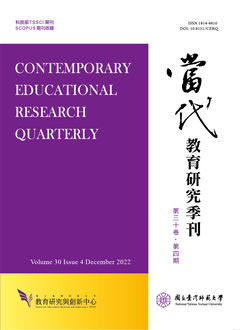

Optimizing the Use of Large-Scale Databases in
Educational Research and Policy-Making
2017 Special Issue of the Contemporary Educational Research Quarterly (CERQ)
Various educational issues and problems need policy intervention. Different stakeholders may, however, perceive these issues and problems differently. If we seek to bridge educational researchers and policymakers, we need to promote the use of large-scale databases in educational research and inform policy-makers on the basis of research findings. Over the past few decades, many large-scale databases offering comprehensive and high quality data have been developed. Researchers using these databases can conduct rigorous empirical studies which would help understand issues and problems, as well as inform policies to better education at all levels.
Notwithstanding the importance of utilizing large-scale databases in examining educational issues and informing policies, it is still not fully appreciated in comparative and international education studies, and lacking in some countries. Even though the development of high quality large-scale databases demands considerable resources and efforts, it is cost-effective in the long run and such databases must aim to optimizing their use to yield empirical analyses which can offer evidenced-based education policies.
To this end, this special issue intendeds to call for papers that use large-scale databases to investigate important educational issues with policy implications. Some topics of interest are suggested below:
1. Examining educational issues in a multilevel context (e.g., student level, institutional level, or state level);
2. Conducting longitudinal studies in education;
3. Using quasi-experimental designs to uncover causal relationships;
4. Conducting cross-national comparative studies using data gathered by international organizations (e.g., OECD,
UNESCO) and/or government agencies);
5. Policy assessment and evaluation;
6. Methodological issues related to educational databases and studies;
Important Dates
Full paper submission deadline: January 30, 2017
Notification of first decision: May 30, 2017
Notification of final decision: July 30, 2017
Guest Editor
Ping-Yin Kuan, Ph.D., National Chengchi University, Taiwan
Managing Editors
Ming-Hsueh Tsai, Ph.D., National Academy of Educational Research, Taiwan
Patricia Yu, Ph.D., National Taiwan Normal University, Taiwan
Full paper submissions are due by January 30, 2017. The manuscript can be submitted in Chinese or English. The full manuscripts will be prepared in accordance with CERQ's Guidelines for Authors (please visit journal website: http://140.122.127.190/contemporary/en ) and subject to double-blind review based on the standard CERQ manuscript review criteria as well as relevance to the special issue. Full papers submissions must be done via online submission system (http://ojs.lib.ntnu.edu.tw/index.php/cerecerq/index). The results will be made available to authors on or before May 30, 2017, and they will have to make revisions in light of the reviewers’ feedback in 14 days. Accepted papers will be published in the September 2017 special issue of CERQ. For more information, please contact the Guest Editor at cerecerq@gmail.com

本著作係採用創用 CC 姓名標示-非商業性 3.0 台灣 授權條款授權.
本刊國立台灣師範大學教育研究與創新中心
106台北市和平東路一段162號 | 電話: 02-7749-3670 | E-mail: cerecerq@gmail.com
教創中心 | 師大 | 電子報 | 線上投審系統
本刊由國家科學及技術委員會人文社會科學研究中心補助經費
© 2014 CERI-NTNU
